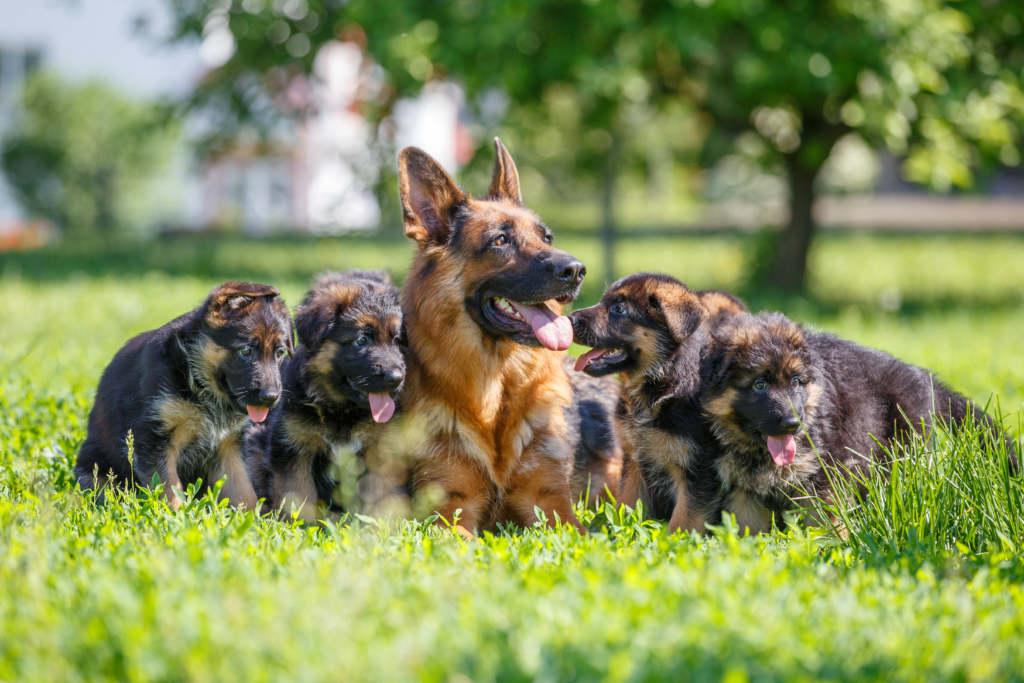
Socialization is a crucial part of raising a well-mannered and confident German Shepherd. As a highly intelligent and protective breed, proper early socialization helps prevent fear, aggression, and anxiety while fostering a friendly and adaptable companion. The key is exposing your puppy to various experiences in a positive and controlled manner. Here’s how to effectively socialize your German Shepherd puppy.
1. Start Early and Be Consistent
The best time to begin socialization is between 3 to 16 weeks of age, when puppies are most receptive to new experiences. However, it’s never too late to start if your puppy is older. Consistency is key—make socialization a daily routine.
2. Introduce Your Puppy to Different People
Expose your German Shepherd to a variety of people, including:
Adults, children, and seniors
People wearing hats, sunglasses, or uniforms
Individuals using wheelchairs, canes, or strollers
Encourage visitors to offer treats or engage in gentle play so your puppy associates strangers with positive experiences.
3. Explore New Environments
Taking your puppy to different places helps them become adaptable. Consider:
Parks and nature trails
Busy streets and shopping centers
Dog-friendly cafes or pet stores
Introduce new surfaces like grass, gravel, tile, and concrete to prevent hesitation or fear later in life.
4. Encourage Positive Encounters with Other Dogs
Well-socialized German Shepherds interact appropriately with other dogs. Follow these steps:
Arrange controlled playdates with vaccinated, friendly dogs.
Visit puppy socialization classes.
Observe body language—reward calm and friendly interactions.
Avoid dog parks until your puppy is fully vaccinated and confident around new dogs.
5. Expose Your Puppy to Various Sounds and Situations
German Shepherds are naturally alert, so early exposure to sounds can reduce anxiety. Introduce your puppy to:
Doorbells, vacuum cleaners, and kitchen appliances
Traffic noises, fireworks, and thunderstorms (play recorded sounds at a low volume and gradually increase)
Children playing, bicycles, and skateboards
Reward calm behavior with treats and praise.
6. Teach Handling and Grooming Early
To make vet visits and grooming stress-free, get your puppy comfortable with:
Having their paws, ears, and mouth touched
Being brushed and bathed
Wearing a collar and harness
Practice short grooming sessions with plenty of positive reinforcement.
7. Reward Positive Behavior
Use positive reinforcement—treats, praise, or toys—to reinforce good social interactions. Avoid forcing your puppy into scary situations; instead, introduce new experiences gradually.
8. Be Patient and Respect Your Puppy’s Comfort Zone
Every puppy has a unique personality. If your German Shepherd seems nervous, take a step back and reintroduce the experience slowly. Never punish fearful behavior—build confidence through gentle encouragement.
Final Thoughts
Proper socialization is essential for a well-rounded and confident German Shepherd. By exposing your puppy to a variety of people, places, and pets in a positive manner, you set them up for a lifetime of good behavior and adaptability.
What socialization experiences have worked best for your German Shepherd? Share your tips in the comments below!

Discover Abacus Market makes crypto trading on the hidden web effortless
Try Abacus Market, the deep web’s standout star
Abacus Market Darknet
Your comment is awaiting moderation.